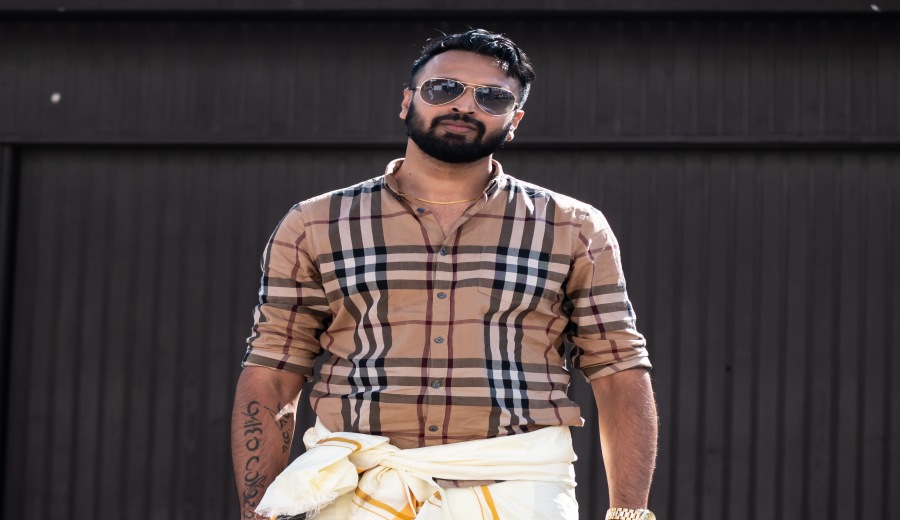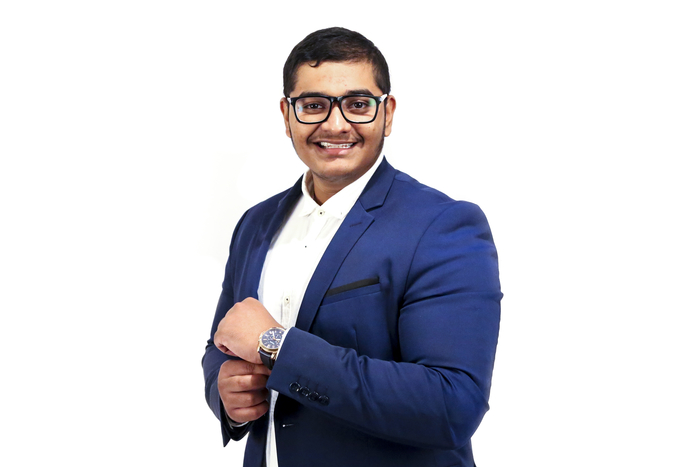
Just like successful social awareness movements, good comedy can change perspectives.
In a way, it holds up a mirror to society and forces it to challenge realities it habitually ignores. Often, during a stand-up, the comedian pauses for the audience to reflect on a joke. It seems making someone uncomfortable might be the first step to changing minds and behaviours. making the audience feel uncomfortable forces them to think and once this is established, new mindsets can be created.
Here’s how three Tamil comics are using observational comedy to start important conversations around stereotypes within their community:
1. BASEMENT REELS
Twenty-seven-year-olds Krusan Sivanayagam and Tharshan Rajendiram are the duo behind the YouTube channel Basement Reels (BReels).
What started off as a channel focusing on observational comedy in the form of skits, the duo now creates short films revolving around subjects like, sex before marriage and the stigma that comes with being an unmarried 30-year-old woman.
The Tamil-Canadians say the channel aims to shed light on Tamil cultures such as offering priests money at a temple and puberty ceremonies through the eyes of Tamil children, raised in the western parts of the world. Through their videos the duo tries to raise awareness about issues people in their community might be afraid to speak about.
BReels’ short film Dirty 30s is an exaggerated dramedy about a 30-year-old Tamil woman who is arrested and put on trial for being unmarried. BReels wrings out sensitive topics with humour to make it easier to watch. That way, we don’t seem like we’re hammering down political and social ideals Sivanayagam says, “Our audience is entertained, but also have a strong takeaway,”
“Women are often oppressed within the Tamil community whereas, men seem to be privileged,” Rajendiram says.
According to the duo, women in their community who choose to remain unmarried before the age of 30, stay single or have multiple partners is considered inappropriate.
“With a short film like Dirty 30s, we show that it doesn’t matter – women should do what makes them happy, they shouldn’t have a timeline or live their life based on someone else’s rules,” Sivanayagam says.
2.) DAYAN SHAN
He’s frank, blunt and unapologetic.
In addition to being a comedian, the U.K based thirty-one-year old Dayan Shan is also a songwriter and director. He’s also the creator behind the Facebook page TamilLOL, a page he started to post memes and videos of people in the Tamil community.
“Comedy has always used stereotypes to make people laugh,” Shan says.
Through his videos, Shan aims to make Tamil people question whether the way they speak to one another is appropriate. People in the Tamil community use a lot of words to degrade castes and each other he says. Shan’s videos consist of dialogues the older Tamil generation use on a daily basis.
“My videos show the ugly side of the Tamil community,” Shan says.
In a video, Shan says ‘Today, even maids want to use make-up.’ This is intentional he says. Our parents speak like this and it will rub off onto the next generation. He says he uses his platform and comedy to mimic the Tamil dialect for this purpose.
Shan wants Tamil people to take offense at his videos. There’s a message behind every video and through the use of social media and humour we can teach people to break stereotypes he says, because “The stereotypes don’t come from outside it comes from inside.” Our people will make fun of you for not speaking Tamil and if you do its ‘uncool’, he says.
On the karuvaadu controversy
In January, Shan caught the attention of many after his Tweet offended some.
https://twitter.com/dayan_shan/status/955705735534534656
Karuvaadu means dried fish.
Shan says, sometimes a word that doesn’t mean much to you might mean more to another. In the Sri Lankan dialect, karuvaadu is often used to describe people who look worn out and the Indian dialect uses it to demean dark-skinned individuals. Tamil people come from different cities and have different slangs so words don’t always mean the same to everyone he says.
“Every time I try to do something serious or pass a message people seem to not care. But, once you say something that offends someone, people suddenly have something to say. Everyone wants to know who you are,” Shan says.
https://twitter.com/dayan_shan/status/955875056479023105
His Tweet increased his number of viewers and visitors, and people started talking about him, Shan says, “I’ve realized the new generation is all about controversies and they’re entertained by them.”
Another video titled ‘I’m Tamil and gay’ is merely clickbait. In the video, Shan enacts scenarios in which he uses Tamil slangs to describe gay people and dark-skinned Sri Lankans. In another video, Shan mocks the Sri Lankan puberty ceremony. After the release of this video, Shan says he has had parents come up to him and tell him the extensive celebration isn’t necessary. Shan speaks Tamil in all his videos and says he does so as a way to encourage the younger generation to learn Tamil.
In one of his newer videos “How Tamil people pronounce” Shan mimics the older generation’s pronunciations of English words. People laughed and enjoyed the video but again some of his viewers were offended and got defensive he says. He says his intent isn’t to poke fun. Shan says those who are offended need to teach their parents to pronounce English words the right way instead of making fun of them for not saying it right. In 2017, the comedian received a Tamil award in Montreal for promoting Tamil culture through entertainment.
3.) DAVID BILLA COMEDY

David Amirthapalan, popularly known as David Billa, initially gained fame through Vine by mimicking his Tamil father. His short clips exploded within the Tamil community after his viewers started relating to his Vines. He says all his YouTube videos are inspired by real situations and random scenarios that occur in the Sri Lankan Tamil household.
“The things my dad does irritates me so I started to create videos inspired by him. And people started saying ‘Oh my god, that’s my dad.’ I then realized it’s not just my dad, about three quarters of Tamil fathers are the same,” Amirthapalan says.
In his videos, Amirthapalan’s speaks the Jaffna Tamil dialect. A dialect native to the Jaffna peninsula and spoken predominantly in the North of Sri Lanka. An accent he says is appreciated by his older audience.
“I had a parent tell me that their five-year-old son was in his room acting and speaking Tamil like me. Which is great, I’m happy to hear that. In a way my videos are motivating young Tamils to speak in our Tamil dialect and not the Indian Tamil dialect,” he says.
Amirthapalan also hosts events. He says a few organizers have asked him to speak the Indian Tamil dialect during the event. They tell him his native dialect is great but prefer the Indian dialect, he says.
“I simply tell them to find another host,” he says. “My goal is to ensure the Jaffna Tamil doesn’t die, our accent is unique.”
Comedy doesn’t require picket signs, megaphones and a lot of people shouting in unity. As long as the laughs are not random and are created with a strong point of view, huge strides can be made.

























